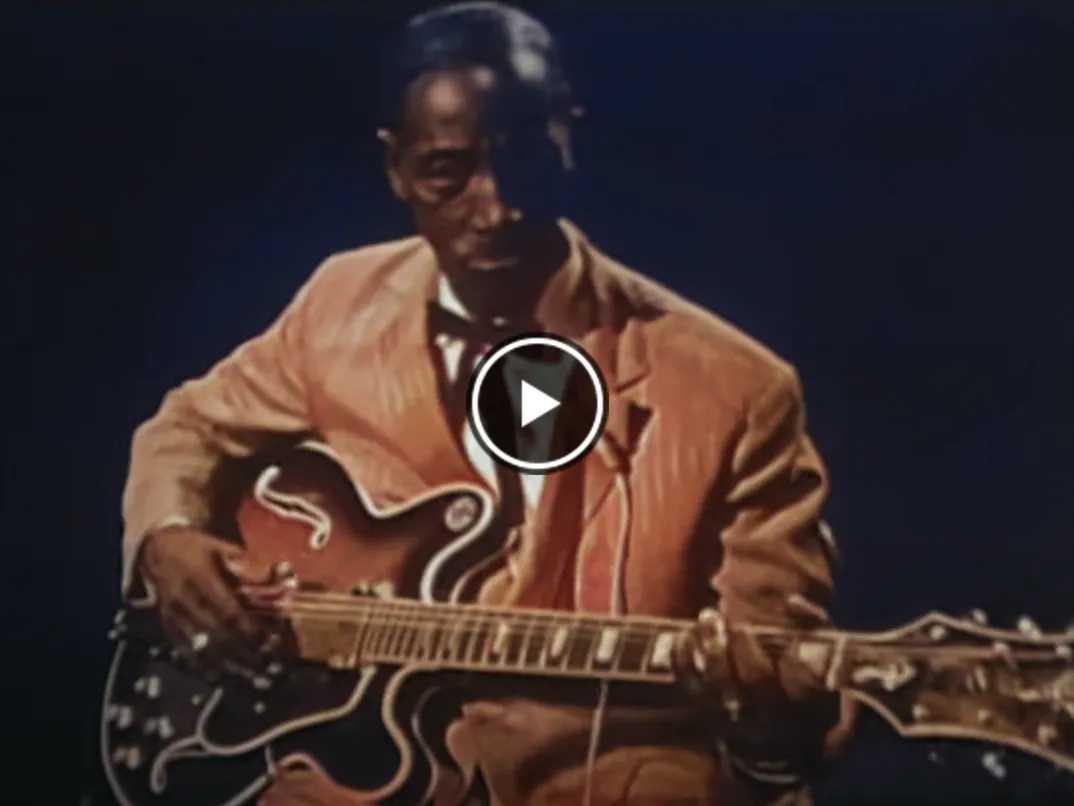Mississippi Fred McDowell
Don’t let his stage name fool you, because Fred was not a typical delta blues singer. His style was more related to the hill country region in northern Mississippi, where he was born and raised. Fred played slide guitar, using a bottle or a knife to produce amazing sounds from the instrument. His voice was strong and full of emotion, and his songs told stories about life, love and religion.
“Mississippi” Fred McDowell was born and grew up in Rossville, Tennessee (pop. 291), a small farming community just east of Memphis and just north of the Mississippi border. The “Mississippi” designation came later in life, after he moved down to Como, Mississippi (pop. 1,391), about 40 miles south of Memphis on the 51 Highway, in his late thirties. McDowell was born about 1904 or 1905, and worked most of his life as a farm laborer, mill worker, and tractor driver.
Fred started playing guitar when he was 14 years old, but for many years he was only a local entertainer, performing at parties and picnics. It was not until 1959 that he was discovered by the famous folklorist Alan Lomax, who recorded him at his home on a farm north of Como. Those recordings started Fred’s career as a professional musician, who began to record for various labels and travel around the country and the world. In the 1960s, Fred became one of the stars of the blues revival and had many fans and admirers, among them The Rolling Stones, who recorded his song “You Gotta Move” on their album Sticky Fingers.
He played music at country dances and juke joints, though as he says, “I wasn’t making money from music… sometimes they’d pay me, and sometimes they wouldn’t.”
McDowell continued to perform blues in the north Mississippi style much as he had for decades, sometimes on electric guitar rather than an acoustic guitar. He was particularly renowned for his mastery of slide guitar, a style he said he first learned using a pocketknife for a slide and later a polished beef rib bone. He ultimately settled on the clearer sound he got from a glass slide, which he wore on his ring finger.
Fred never abandoned his roots and always remained faithful to his style of playing. He died in 1972 from stomach cancer, leaving behind a rich artistic legacy and an influence on the whole blues scene.

We appreciate your time and dedication to reading our article. For more of the finest blues guitar music, make sure to follow our Facebook page, “I Love Blues Guitar”. We share exceptional selections every day. Thank you once again for your continued support and readership.


Facebook Comments